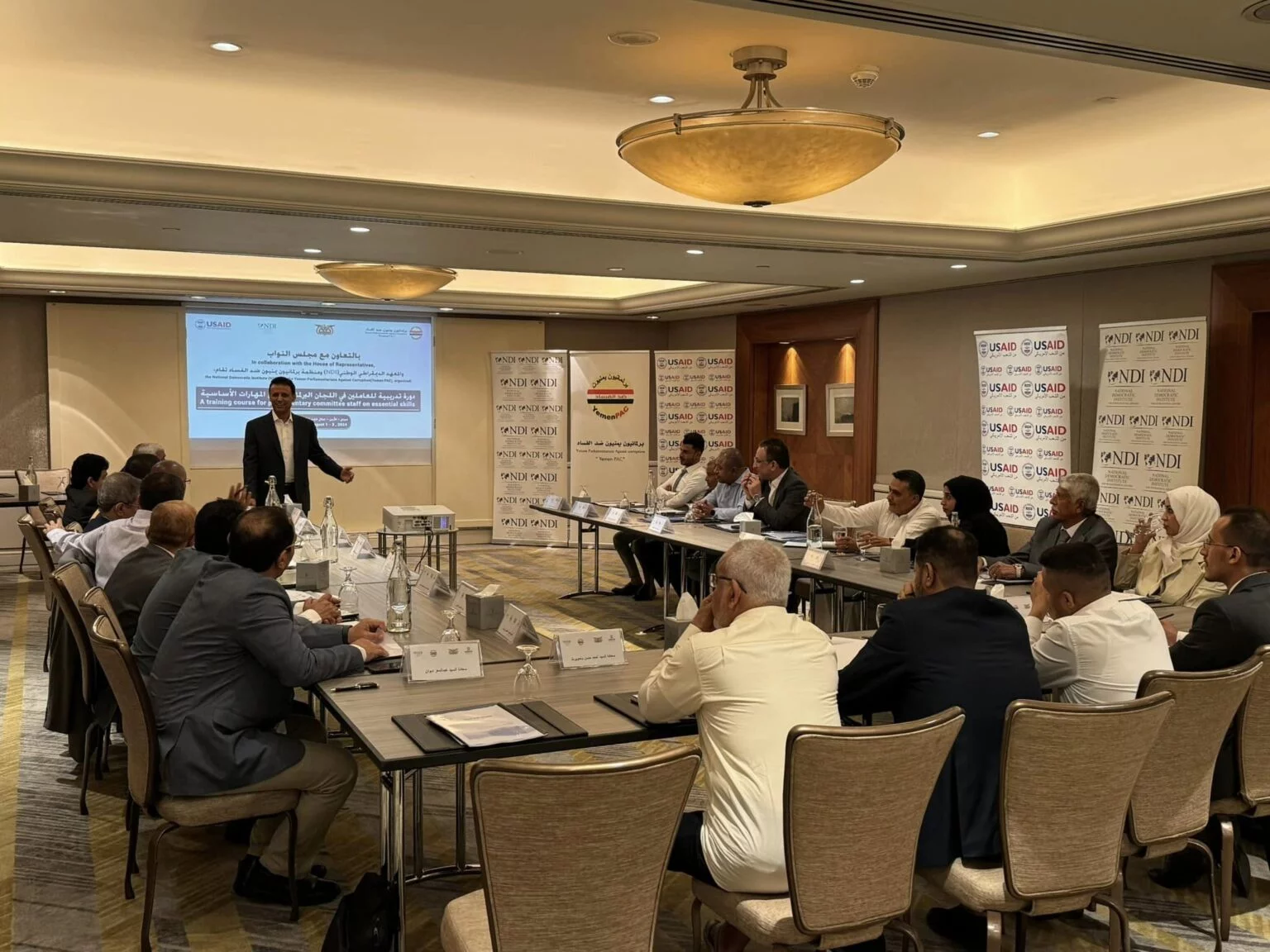A Training Course to Develop the Capacities of Parliamentary Committee Staff

In collaboration with the House of Representatives and Yemen Parliamentarians Against Corruption (YemenPAC), and with the support of the National Democratic Institute (NDI), a training course was held for parliamentary committee staff from August 1 to 3, 2024. The course focused on skills related to planning committee work, particularly developing annual plans, as well as data-related skills such as data collection, quality, storage, analysis, and utilization. It also covered skills for preparing and conducting exploratory and field visits (including designing necessary surveys), effective and productive communication with government entities, report writing, deriving conclusions and recommendations, understanding and implementing public hearings (concept, importance, mechanisms, and outcomes), and monitoring and evaluation skills.
The course aimed to qualify parliamentary committee staff to effectively fulfill their roles and responsibilities by training them in skills directly related to their duties. Additionally, it sought to enhance communication and interaction between the committees and their corresponding government entities.

This training course addressed the need for parliamentary committee staff to gain a deep understanding of the various issues they encounter, work on, or aspire to address. It emphasized the importance of equipping technical staff with the necessary skills to deliver quality performance aligned with their assigned tasks. However, numerous challenges confront these committees, including the collection, analysis, and reuse of data, as well as tailoring it to the specific needs or tasks at hand. Understanding, analyzing, and evaluating the policies adopted by government entities pose additional challenges for parliamentary committees. Above all, the primary challenge lies in utilizing these skills to draft reports and provide support to relevant government agencies, all within Yemen’s exceptional circumstances. These challenges are further compounded by complexities in oversight and accountability, arising from factors such as ongoing conflict, its repercussions, weak institutional performance, and the dominance of decisions and actions influenced by personal affiliations rather than institutional frameworks and the rule of law.
The course was inaugurated with a speech by Ms. Kenza Akrati, Senior Director at the National Democratic Institute (NDI), who welcomed the participants. She highlighted NDI’s role in supporting the Yemeni Parliament and reaffirmed the institute’s commitment to continuing this support in its efforts to uphold the democratic process in Yemen.
Dr. Abdulmoez Dubwan, Executive Director of Yemen Parliamentarians Against Corruption (YemenPAC), elaborated on the goals of the training and the broader context in which the House of Representatives and its committees operate. He addressed the unstable environment in which the committees are expected to function and presented the approved vision from parliamentary bloc leaders aimed at enhancing the performance of parliamentary committees to strengthen oversight and accountability. He welcomed the participating members of Parliament as experienced practitioners in committee work, encouraging them to enrich the course with their expertise and share their knowledge with committee staff trainees.
At the conclusion of the training, several proposals and recommendations were presented to enhance the performance of parliamentary committees. These included proposed plans for the committees, grounded in the training skills acquired during the course, while taking into account the exceptional circumstances facing the country, the state institutions, the current status of the House of Representatives, and the challenges and obstacles it faces.

